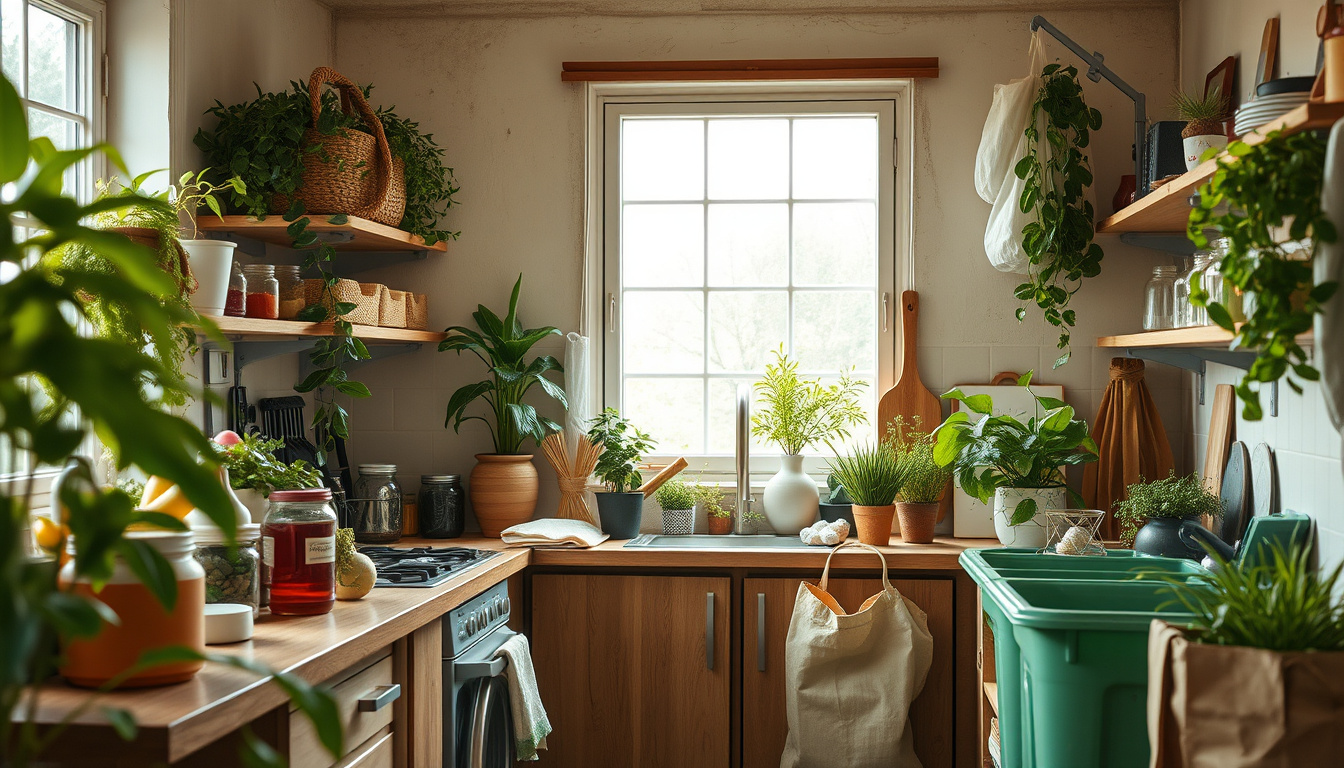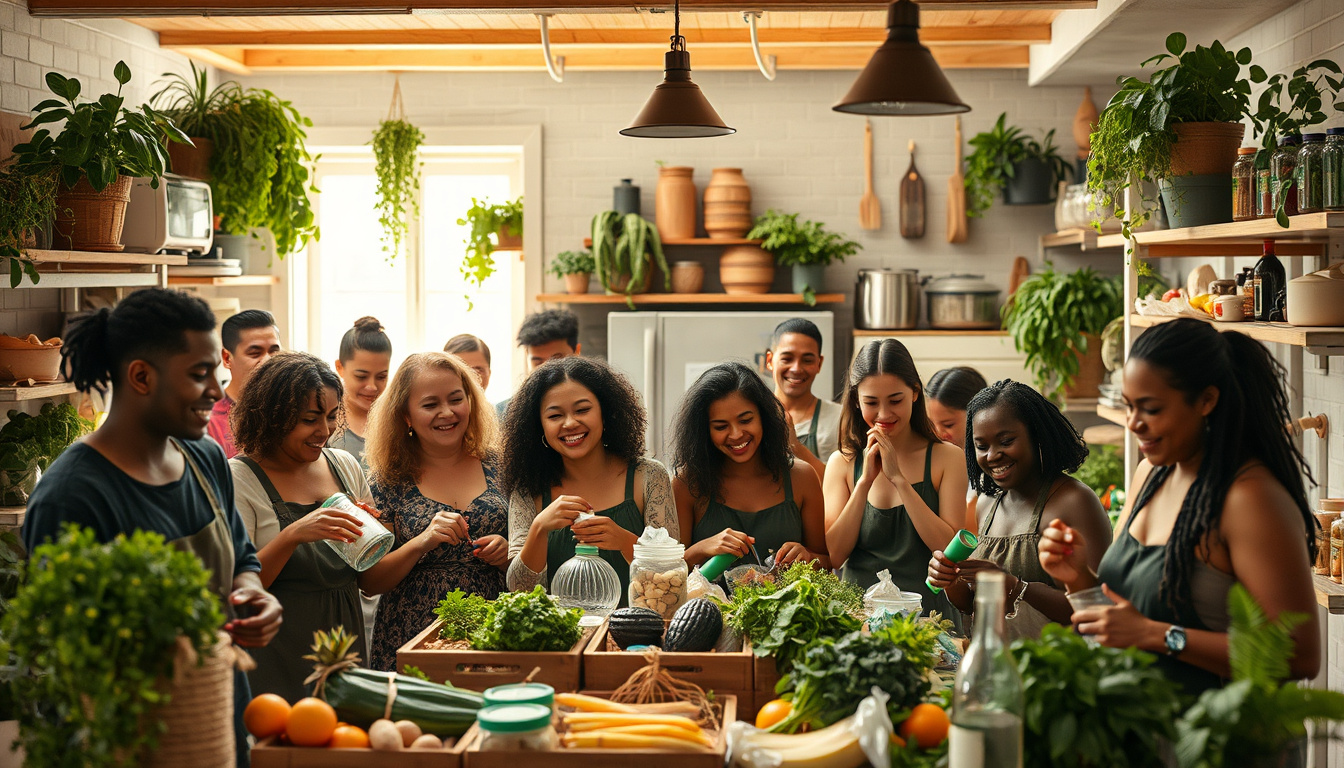Zero waste living is more than just a trend; it’s a lifestyle choice that aims to minimize waste and promote sustainability. But how can we make this transition without feeling overwhelmed? By integrating local sharing and borrowing into our daily routines, we can make significant strides towards a greener lifestyle. That’s where ivault comes into play, creating a community-driven platform that encourages sharing, lending, and borrowing—all while keeping waste reduction at the forefront.
In this blog post, we’ll explore the principles and benefits of zero waste living, practical steps you can take to embrace this lifestyle, and how ivault can help you overcome common challenges along the way.

Key Takeaways
- Zero waste living focuses on reducing waste through mindful consumption and sustainable practices.
- The key principles of zero waste include refusing unnecessary items, reducing what you need, reusing, recycling, and composting.
- Practical steps for a zero waste lifestyle include using reusable products, buying in bulk, and choosing sustainable brands.
- Common challenges in zero waste living can be overcome with creativity, community support, and setting realistic goals.
- Embracing zero waste not only benefits the environment but also fosters a healthier lifestyle and community connection.
Understanding Zero Waste Living: Principles and Benefits
Zero waste living is all about minimizing the amount of waste we produce in our daily lives. This principle revolves around the idea of rethinking consumption—aiming to reduce, reuse, and recycle whenever possible. A major benefit of adopting a zero waste lifestyle is the significant reduction in landfill contributions, which not only helps the environment but also conserves valuable resources. By embracing this mindset, individuals can save money, inspire local community action, and engage in healthier consumption practices. With tools like the ivault app, transitioning to zero waste living becomes even simpler. Instead of buying new items that may only be used occasionally, ivault enables users to borrow, lend, or rent shared resources within their communities, making sustainable choices both practical and accessible.
Practical Steps to Achieve a Zero Waste Lifestyle
Adopting a zero waste lifestyle might seem daunting, but it can be simple and rewarding. Start by reducing what you buy—focus on borrowing instead of purchasing items you only need occasionally. This is where ivault comes into play. With the ivault app, you can easily lend and borrow items from neighbors, such as gardening tools or camping gear, minimizing waste and saving money. Additionally, consider creating a shared local community of like-minded individuals who also want to engage in sustainable practices. Rather than letting tools gather dust in your garage, share them with others through ivault, fostering a culture of support and togetherness. Remember, every small step counts in the journey towards zero waste living!
‘The greatest threat to our planet is the belief that someone else will save it.’ – Robert Swan

Overcoming Challenges: Common Pitfalls and Solutions in Zero Waste Living
Zero waste living can feel daunting, and it’s easy to stumble into common pitfalls that undermine your efforts. One typical challenge is the temptation to overspend on brand-new, eco-friendly products, thinking they are the only solution. Instead, consider how ivault can transform your approach. By borrowing items rather than purchasing them, you not only cut costs but also minimize waste—perfectly in line with zero waste principles. Another pitfall is feeling isolated or disconnected from others on similar journeys. Fortunately, ivault encourages community sharing, allowing you to lend and borrow items like containers, compost bins, or tools with neighbors who share your values. This fosters a support system while reducing overall consumption. Remember, zero waste living is about making smarter choices—utilizing ivault can guide you to keep waste low and community ties strong.
Frequently Asked Questions
What is zero waste living?
Zero waste living is a lifestyle aimed at minimizing waste production by rethinking and reducing consumption habits, ultimately striving to have a positive impact on the environment.
What are the key principles of zero waste living?
The key principles include refusing what you don’t need, reducing what you do need, reusing as much as possible, recycling properly, and composting organic materials.
What are some practical steps to start zero waste living?
Practical steps include carrying reusable bags, bottles, and containers, choosing bulk items to reduce packaging, and making DIY products at home.
What challenges might I face when transitioning to a zero waste lifestyle?
Challenges can include finding sustainable alternatives, changing habits, and dealing with social pressure. However, these can be overcome by educating yourself and gradually adopting changes.
How can I encourage others to embrace zero waste living?
You can encourage others by sharing your journey, providing resources and information, hosting workshops, and leading by example in your community.
